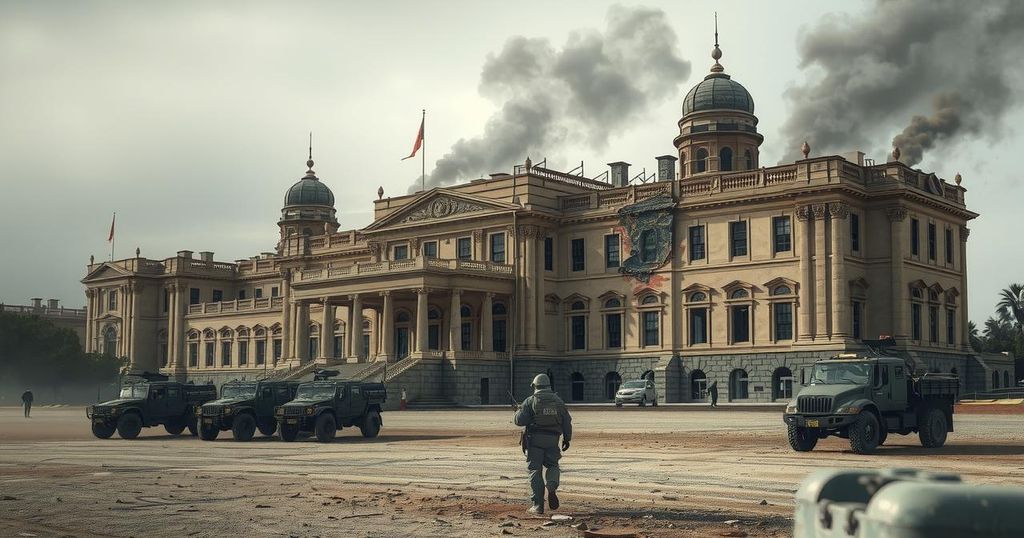The Sudanese army has recaptured the presidential palace in Khartoum from the RSF. This victory represents a pivotal moment in the ongoing conflict, with the army making gains and RSF leader threatening continued resistance. Humanitarian crises persist amid the battles as peace efforts stall.
The Sudanese army has successfully reclaimed the presidential palace in Khartoum from the Rapid Support Forces (RSF) following two years of intense conflict. Military leaders reported that soldiers celebrated this significant achievement, as depicted in videos and photographs circulating on social media. This critical development suggests that the army is regaining its foothold in the capital, which had previously been overtaken by paramilitary forces.
Since the onset of the civil war nearly two years ago, Khartoum has been the epicenter of fierce battles. The RSF has controlled substantial parts of the capital and western Sudan, making the army’s recovery of Khartoum a substantial victory. The Sudanese Armed Forces have made recent advances in central Sudan, indicating a possible shift in the war’s dynamics.
Witnesses on the ground reported explosions from drone strikes and air attacks near the Republican Palace shortly before the army’s announcement. In a video statement, RSF leader Mohamed Hamdan Dagalo, known as Hemedti, pledged to safeguard the areas currently under RSF control and threatened escalation in various northern cities.
Efforts for peace in the region have continually faltered, with both the RSF and the army committing to an ongoing fight for control over strategic locations. According to the United Nations, this conflict has led to a severe humanitarian crisis, with rampant human rights violations attributed to both factions.
In summary, the recent recapturing of the presidential palace by the Sudanese army marks a crucial turning point in the ongoing conflict with the RSF. As the situation unfolds, the army’s regained control signals potential changes in the power dynamics of the region. However, with continued threats and a humanitarian crisis affecting countless lives, the resolution of the conflict remains challenging.
Original Source: www.bbc.com




